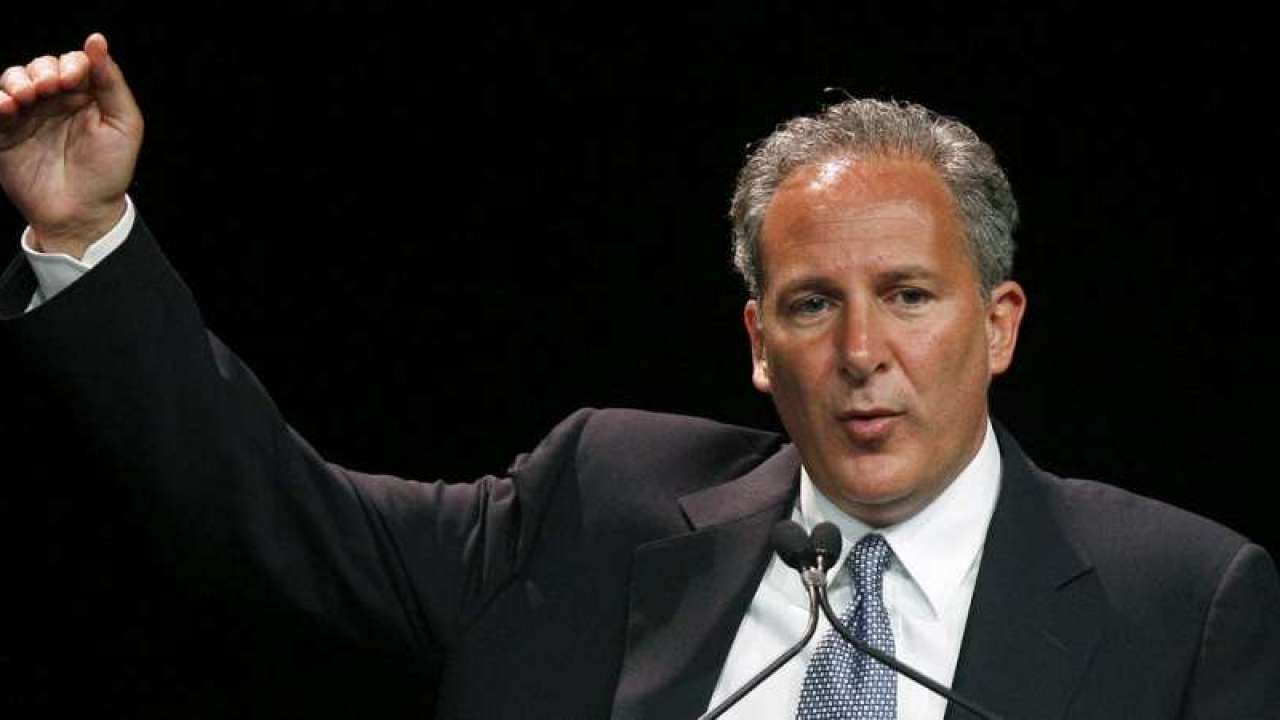Peter Schiff Mocks U.S. Strategic Crypto Reserve, Jokes About His Own Bitcoin Stockpile
08.03.2025 22:00 2 min. read Alexander Stefanov
The U.S. government's plan to establish a Strategic Crypto Reserve has sparked a lively debate in the crypto community, with even well-known critics like Peter Schiff joining the conversation.
Schiff, an outspoken advocate for gold, quickly took to social media to ridicule the idea of a national Bitcoin reserve. He humorously announced that he too was creating his own reserve, but with a twist—he invited people to contribute to it, even providing his wallet address.
In a follow-up post, Schiff continued his playful mockery, revealing that his “Strategic Bitcoin Reserve” was still empty. He added that he was also building a “Digital Asset Stockpile” and that some people had already sent him Solana, which he humorously claimed was faster than Bitcoin.
His sarcastic remarks left many of his followers puzzled, with some even questioning whether his account had been compromised. Schiff, however, clarified, stating that his sense of humor might not have been understood by all.
The entire exchange highlights the sharp divide in the crypto space regarding the role of government involvement in digital assets. While some see the creation of a U.S. Crypto Reserve as a step toward legitimizing cryptocurrency, others, like Schiff, view it as a misguided move that undermines the true decentralized nature of digital currencies.
Schiff’s jabs at the reserve also reflect his long-standing belief in the superiority of gold over Bitcoin, as well as his tendency to provoke conversations around unconventional topics in the financial world. This playful banter only adds to the growing tension between crypto supporters and critics as the space continues to evolve.
-
1
Metaplanet Now Holds 13,350 BTC Worth $1.4 Billion
30.06.2025 10:27 1 min. read -
2
Bitcoin Whales Accumulate as Long-Term Holders Hit All-Time High
03.07.2025 21:00 2 min. read -
3
Public Companies Outpace ETFs in Bitcoin Buying: Here is What You Need to Know
02.07.2025 12:30 2 min. read -
4
Arizona Governor Vetoes Bill, Related to State Crypto Reserve Fund: Here Is Why
02.07.2025 16:00 2 min. read -
5
Crypto Inflows hit $1B Last Week as Ethereum Outshines Bitcoin in Investor Sentiment
07.07.2025 20:30 2 min. read
Ethereum Sparks Altcoin Season as FOMO Shifts Away From Bitcoin
Traders are rapidly shifting their focus to Ethereum and altcoins after Bitcoin’s recent all-time high triggered widespread retail FOMO.
BSTR to Launch With 30,021 BTC, Becomes 4th Largest Public Bitcoin Holder
BSTR Holdings Inc. is set to become the fourth-largest public holder of Bitcoin, announcing it will launch with 30,021 BTC on its balance sheet as part of its public debut.
Altcoins Gain Momentum as Bitcoin Dominance Drops to 61.6%
The cryptocurrency market is experiencing a notable shift in capital flows as Bitcoin’s market dominance has dropped to 61.6%, marking a 2.36% decrease.
France Eyes Bitcoin Mining to Solve Surplus Energy Challenges
French lawmakers have introduced a groundbreaking proposal that would turn excess electricity from energy producers into a valuable digital asset—Bitcoin.
-
1
Metaplanet Now Holds 13,350 BTC Worth $1.4 Billion
30.06.2025 10:27 1 min. read -
2
Bitcoin Whales Accumulate as Long-Term Holders Hit All-Time High
03.07.2025 21:00 2 min. read -
3
Public Companies Outpace ETFs in Bitcoin Buying: Here is What You Need to Know
02.07.2025 12:30 2 min. read -
4
Arizona Governor Vetoes Bill, Related to State Crypto Reserve Fund: Here Is Why
02.07.2025 16:00 2 min. read -
5
Crypto Inflows hit $1B Last Week as Ethereum Outshines Bitcoin in Investor Sentiment
07.07.2025 20:30 2 min. read


